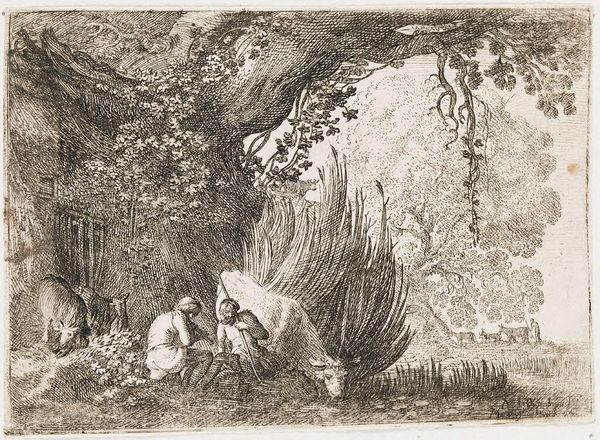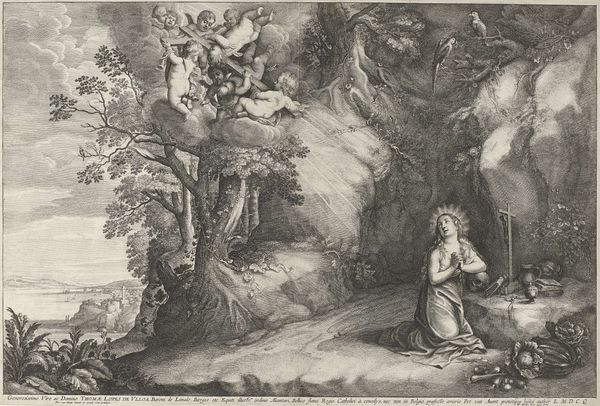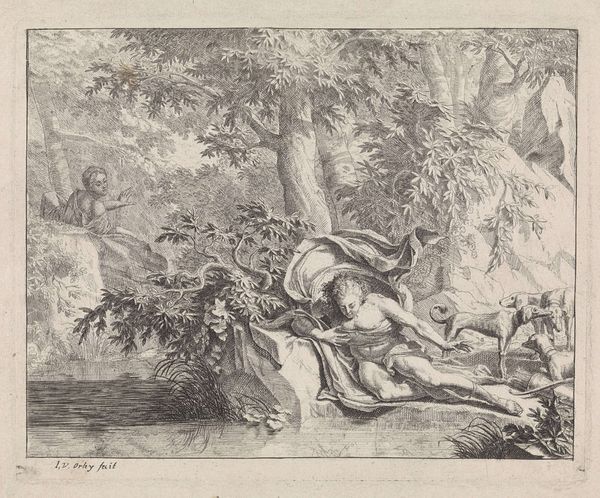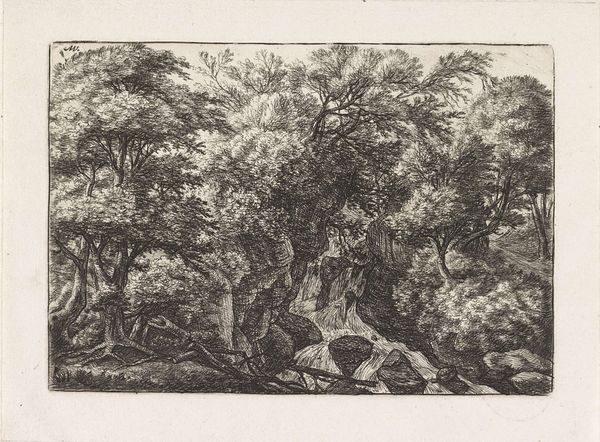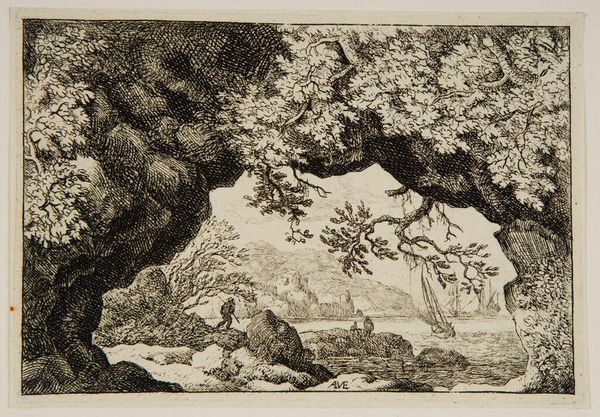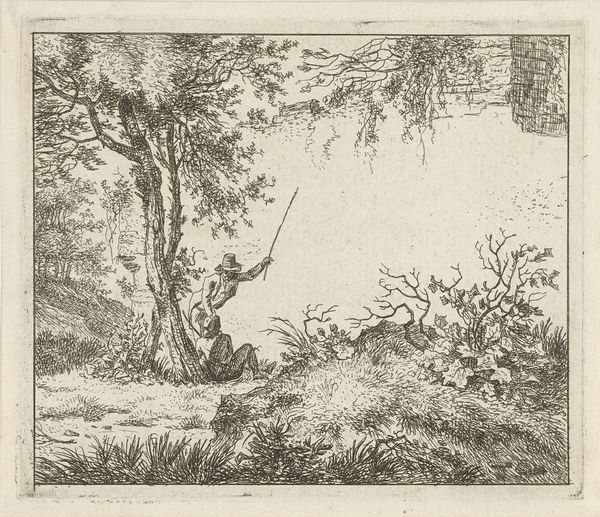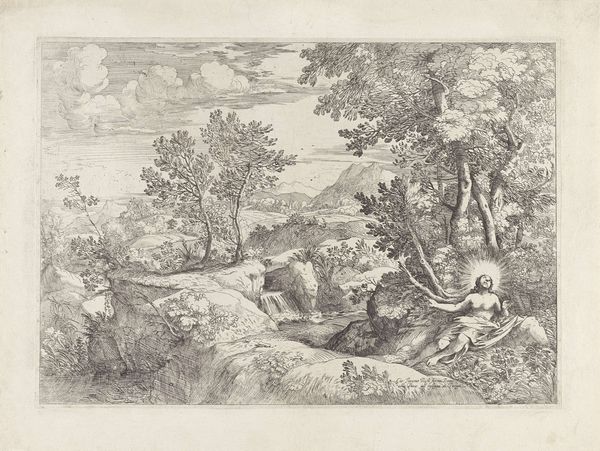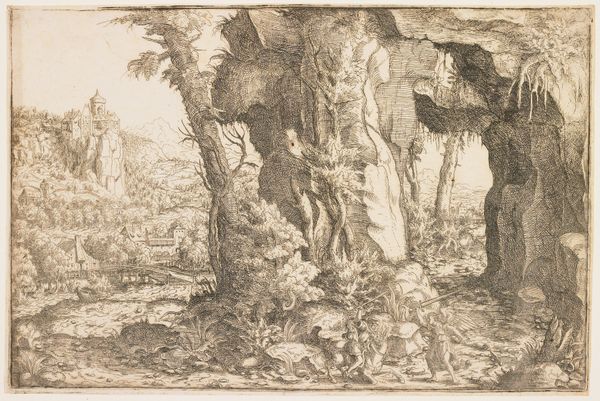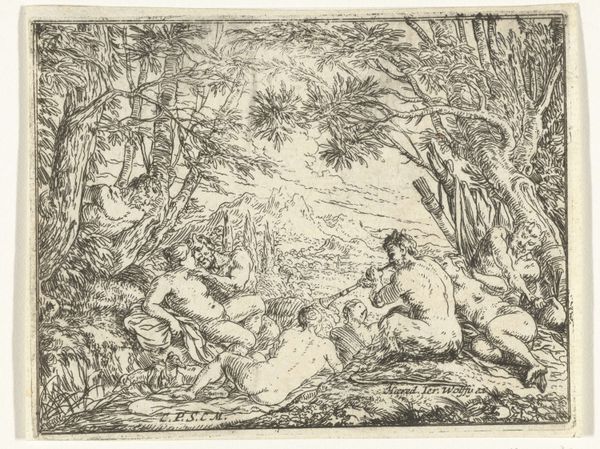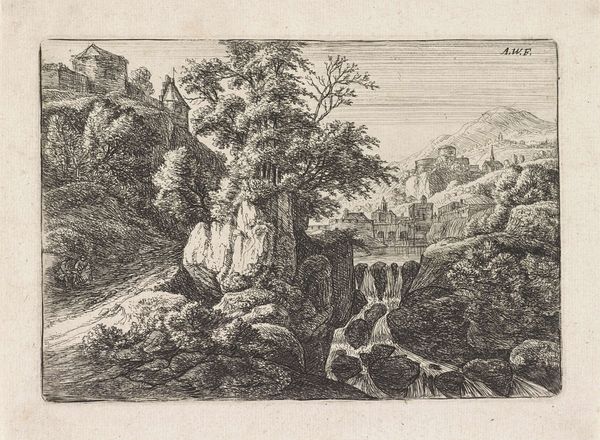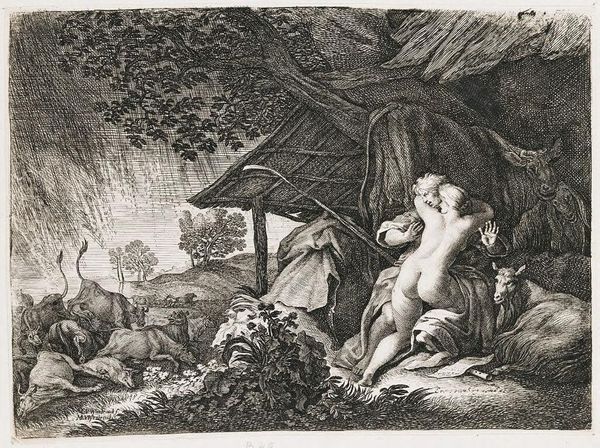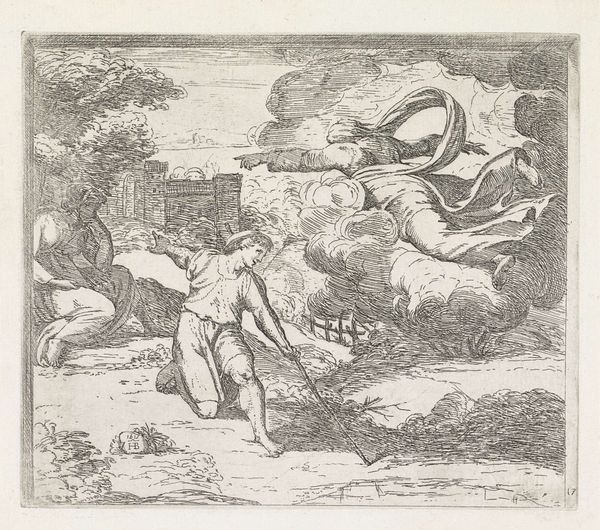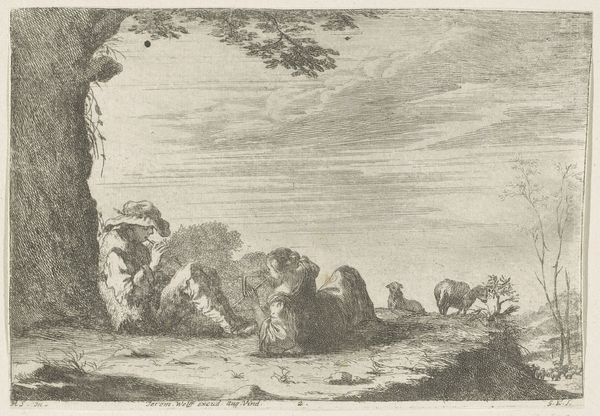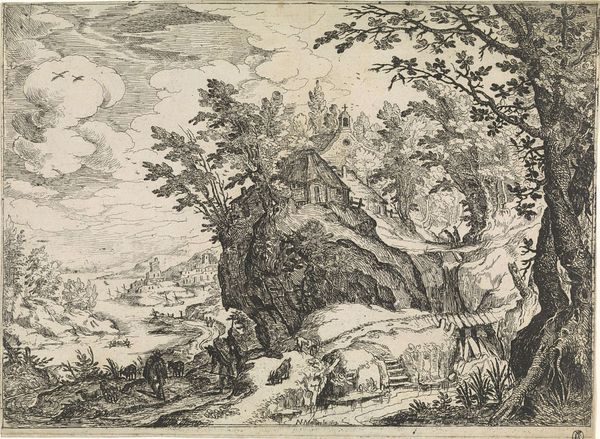
etching
#
baroque
#
etching
#
landscape
Dimensions: height 91 mm, width 127 mm
Copyright: Rijks Museum: Open Domain
Editor: This is *Mercurius sust Argus in slaap*, an etching from perhaps 1600 to 1660, by Moyses van Wtenbrouck. It depicts a pastoral scene with two figures in the foreground. I find the contrasting use of light and shadow quite captivating; it gives the piece a lot of depth. What strikes you most about its composition? Curator: Its structure. The division between light and shade acts as more than mere illumination; it serves as a stark binary, almost allegorical in its construction. Consider the density of the cross-hatching in the canopy versus the open, airy strokes used to render the distant fields. Do you discern a similar binary between foreground and background? Editor: Yes, I think so. The foreground feels much more dense and immediate compared to the background, which is more sparse. Curator: Precisely. Furthermore, observe how the figures and the bovine occupy a liminal space between these contrasting textures, functioning as a crucial pivot point within the artwork's structural arrangement. It seems as if they are caught between the concrete and the ideal. Does this resonance extend beyond the formal elements to encompass thematic or symbolic nuances? Editor: That's a really interesting idea! So, do you think that tension between foreground and background informs the way the narrative of the piece is read? Curator: Indeed. Wtenbrouck has managed to distill and concentrate fundamental structural relationships into visual components. It offers an intricate dialogue concerning form, texture, and representation, no? Editor: Absolutely! Looking at it this way has totally changed my perspective. It is like the technique itself holds as much meaning as the figures depicted. Curator: Quite right, our appreciation has been enriched by engaging with its intrinsic compositional qualities.
Comments
No comments
Be the first to comment and join the conversation on the ultimate creative platform.
